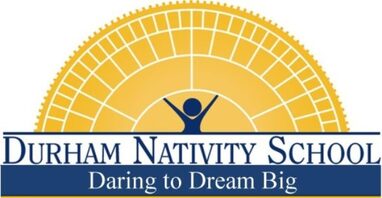|
Does your non-profit have SMART goals?
Brian Tracy once said, “A goal without a plan is merely a dream.” Goal setting is an important practice to help people grow in their personal and professional life. Many people set goals, but oftentimes lack a strategy to help them achieve those goals. That’s where SMART goals come into play. SMART is an acronym that can help guide you through your goal setting process. The purpose of SMART goals are to help clarify what you want to achieve, focus your efforts, utilize your time and resources productively, and increase your chances of success. Because nonprofit organizations are created with the goal of serving a particular mission, SMART goals are an effective strategy for nonprofits to achieve these goals to better serve their mission. So what does SMART stand for? Specific Measurable Attainable Relevant Time Bound In order to demonstrate how SMART goals are an effective strategy for nonprofit organizations, let’s use Backpack Buddies as an example moving forward. Backpack Buddies is a Wake County based program from the Inner Faith Food Shuttle designed to provide children experiencing food insecurity with nutritious, kid-friendly, pre-packed meals for the weekend. Your goal should be SPECIFIC. Your goal should be detailed and precise. The specificity should explain what exactly your nonprofit is hoping to achieve to help serve your mission. Currently, Backpack Buddies serves a limited amount of schools in the Wake County school district; however, a specific goal for this organization could be to expand their reach to offer the Backpack Buddies program to all of the schools in the Wake County system. Your goal should be MEASURABLE. Your goal should be measurable so that you can evaluate your progress and stay accountable. Backpack Buddies serves 20 schools in the Wake County School System. In order to serve more schools, Backpack Buddies can have a measurable goal of increasing their outreach by adding two additional schools each month. Your goal should be ATTAINABLE. Your goal should be attainable so that you are setting your non-profit up for success. Sometimes, people and organizations set unrealistic goals and ultimately set themselves up for failure. When considering goals for your nonprofit, you need to be ambitious while also being realistic with the resources and capabilities that your organization currently has. The team at Backpack buddies must decide if this is an attainable goal for the organization. Do we have the resources and volunteers necessary to add 2 schools to our program each month? Your goal should be RELEVANT. Your goal should complement and align itself with the priorities of your organization. Another question the Inner Faith Food Shuttle must consider is: Is the timing right? Does this align with our broader mission? Your goal should be TIME BOUND. Your goal should have a target date so that you have something to work toward and a deadline to keep you on track. For example: By the end of 2022, Backpack Buddies will serve over 30 schools in the Wake County school system ensuring that hundreds of students are provided with food over the weekends. As the summer approaches and more people have more time for volunteering, non-profit organizations can benefit from meeting collectively as a team to reevaluate their goals. SMART goal setting is a practice that can help enhance and refocus your vision as a non-profit organization. Goals that are specific, measurable, attainable, relevant, and time bound will help to guide your organization to milestones in your mission of serving the community.
0 Comments
When I graduated from Boston College in May 2021, I, like many other recent graduates, was unsure of the career path I wanted to pursue. As I attempted to navigate this unmapped journey, I began volunteering at Durham Nativity School, an independent all-boys private school in downtown Durham serving low-income students in grades 5 through 8 with the mission of “provid[ing] an excellent education for young men, empowering them to make a difference in the world.” I hoped that my time spent volunteering at DNS would offer me some sort of direction in deicing what career path I wanted to choose. As it turns out, it did. I so enjoyed my time volunteering, and in turn, I took a job at the school as the Student Life Coordinator.
My experience at DNS thus far has been nothing short of incredible. Through small class sizes and an extended school day, I have been lucky enough to get to know each student: they tell me about their story, hobbies, passions, and life at home. My biggest take away has been that although these kids are under-privileged; many of them from single parent households, 88% on the federal meal assistance program, and many whose parents work multiple jobs to try and make ends meet, they are just kids at heart. They love to play, to joke around with one another, to learn, to be creative, to sing and dance. Yet, while these students are just like every other child, they lack the resources and support system necessary to succeed in school and beyond. DNS aims to provide these resources and support system and does so through the establishment of a strong relationship with the student and family. What differentiates Durham Nativity School from other private middle schools is that when a student enrolls at DNS, a long-term relationship begins and will last well beyond the middle school years. During 8th grade, the Director of Graduate Support guides each student through the high school application process. In addition, DNS assists in any gaps in high school scholarship and tuition that the family may be unable to afford. Upon graduation from middle school, DNS helps with the transition to high school, monitors their progress, and acts as a supportive resource for each student during uncertain times. This relationship between the school and the students then continues throughout the transition to college and beyond. Durham Nativity School even offers career coaching and mentorship for DNS alumni after graduation from college. DNS has incredibly high success rates where 95% of students attend private preparatory high schools and 91% of graduates from DNS (the vast majority of whom are first generation college students) go to college. Durham Nativity School is similar to other non-profits in the sense that the school needs volunteers to enhance the learning experience and support the mission of DNS, but does not have the time or resources for community outreach. That’s where Triangle Cares comes into play. So how can you volunteer at Durham Nativity School? 1. Become a tutor - commit to coming to the school each week to provide 1 on 1 assistance to the boys who need help in subjects they may struggle with. 2. Donate school supplies and sports equipment - DNS is always appreciative of these kinds of items to make sure the students have everything they need in the classroom and on the sports field. 3. Become a counselor at the Summer Reading Camp - Each summer, DNS holds a summer reading camp to make sure the boys stay caught up to their grade reading level and to provide support to the students' parents who need someone to watch their children as they work. 4. Volunteer as a club mentor - Is there a certain sport or niche that you are passionate about? DNS is looking to grow its selection of extracurricular clubs to enhance the learning experience, so commit to coming once a week to teach the boys. DNS is often referred to by the head of school, Mr. Vince Vincent, as a hidden gem in Durham; his goal is to make DNS a more well-known organization throughout the community and beyond. Triangle Cares can assist in achieving this goal by bringing volunteers, awareness, and excitement to such an amazing organization in the triangle. By volunteering at DNS, you can be a part of inspiring, motivating, and pushing these students to their full potential as leaders of the next generation. |
AuthorsJordan Hannan and Jordan Lappin Archives
January 2023
Categories |
Proudly powered by Weebly



 RSS Feed
RSS Feed